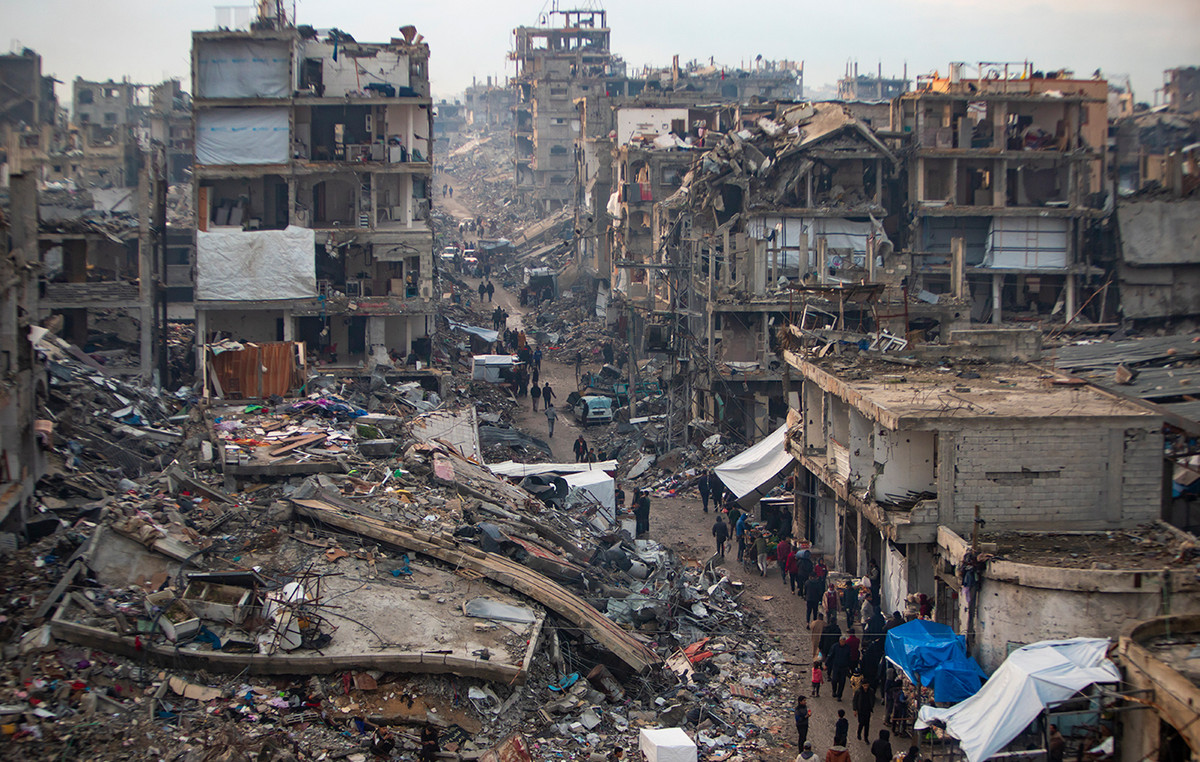Mobilization is not weakening. This Thursday, February 11, the Burmese take to the streets for a sixth consecutive day against the coup that overthrew Aung San Suu Kyi, while Washington announced sanctions against the junta. The fear of reprisals is on everyone’s mind, two days after the use of force by the police which left several injured, two of them in serious condition. A young woman was shot in the head and her situation is critical. More than 200 people, including members of the National League for Democracy (LND), Aung San Suu Kyi’s party, have been arrested since the February 1 putsch, according to an NGO helping political prisoners.
Despite this, demonstrators began to gather Thursday morning to demand the release of those detained, the end of the dictatorship and the abolition of the constitution of 2008, very favorable to the army. “Don’t go to the office! Chanted a group of protesters outside the central bank of Burma in Yangon, the economic capital, responding to calls for “civil disobedience” launched in the first hours after the coup. “We will demonstrate until Aung San Suu Kyi (ex-de facto head of civilian government) and Win Myint (ex-President of the Republic) are released,” an employee of France-Presse told Agence France-Presse. the bank. Gatherings were held in several other cities of the country, as in Mandalay (center).
New sanctions in the week
The escalation of violence against protesters has been condemned internationally. US President Joe Biden announced on Wednesday that his administration was reducing Burmese generals’ access to $ 1 billion in funds in the United States and would unveil new sanctions within the week. “A strong signal”, for Burma-based political analyst Richard Horsey. “I once again call on the military to immediately release all democratically elected political leaders and activists,” Biden added. Burma is his first major diplomatic dossier since his election.
The European Union could also take new sanctions, warned Josep Borrell, head of European diplomacy. They could target army chief Min Aung Hlaing, author of the putsch, and other generals. They have already been the subject of retaliatory measures since the military abuses against the Rohingya Muslim minority in 2017. Powerful conglomerates controlled by the army could also be targeted, the sanctions targeting them having been lifted during the fragile democratic parenthesis of 10 years, closed abruptly by the coup.The UN Human Rights Council will hold a special session on the events on Friday. The position of Beijing and Moscow, traditional supporters of the Burmese army at the United Nations, will be closely scrutinized.
A real risk of repression
Since February 6, the Burmese have taken to the streets by the hundreds of thousands. This wind of protest is unprecedented since the popular uprising of 2007, the “Saffron Revolution” led by the monks and violently repressed by the military. But the crowds have been smaller in recent days. Authorities have banned gatherings of more than five in Yangon, Napypidaw, the administrative capital, and other towns since Monday evening, and have imposed a curfew. The risk of repression is real in the country, which has already lived for almost 50 years under the yoke of the military since its independence in 1948.
New arrests took place overnight from Wednesday to Thursday, including that of the vice-president of the lower house of parliament and a relative of Aung San Suu Kyi. The soldiers had already dealt a new blow to the NLD by leading a raid on Tuesday evening against the training premises in Rangoon. The UN Special Rapporteur for Burma, Tom Andrews, has condemned the use of force. “They cannot steal the hope and determination of a people,” he wrote.
The army disputes the regularity of the legislative elections of November, won overwhelmingly by the NLD even if international observers have not noted any major problems. In reality, the generals feared that their influence would diminish after the victory of Aung San Suu Kyi, who might have wanted to change the Constitution. Very recently criticized by the international community for her passivity during the atrocities against the Rohingyas, the Nobel Peace Prize winner, under house arrest for 15 years for her opposition to the junta, remains adored in her country. She would be “in good health”, under house arrest in Naypyidaw, according to her party.
Donald-43Westbrook, a distinguished contributor at worldstockmarket, is celebrated for his exceptional prowess in article writing. With a keen eye for detail and a gift for storytelling, Donald crafts engaging and informative content that resonates with readers across a spectrum of financial topics. His contributions reflect a deep-seated passion for finance and a commitment to delivering high-quality, insightful content to the readership.







